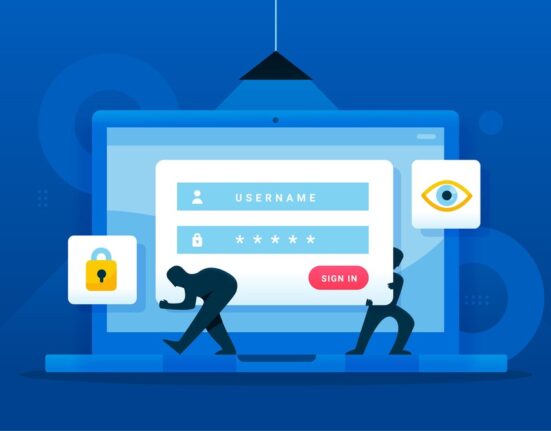Never need for cyber security been greater. Given the constantly evolving threat landscape and rising dependence on digital technologies, avoiding key cybersecurity errors is essential. People and organizations must avoid the following four mistakes to maintain strong digital security.
Not Conducting Regular Security Audits
A mistake that can result in hidden vulnerabilities and gaps in your cybersecurity defenses is failing to undertake regular security audits. Security audits thoroughly examine the infrastructure, procedures, and protocols to protect your company’s data. Without regular evaluations, you could not be aware of areas that require development and might not be aware of possible threats until it’s too late.
Establish a timetable for frequent inspections and assessments to prevent making this error. These ought to include compliance checks, vulnerability scanning, and penetration testing. Engage cybersecurity experts or companies to carry out these checks objectively and completely. Once the audits are finished, remediate any vulnerabilities and weaknesses right away. Regular security audits give you critical information about your security posture, enabling you to actively bolster your security measures and successfully combat new cyber threats.
Inadequate Employee Training and Awareness
Significant cybersecurity mistakes, especially for corporations, include inadequate staff training and awareness. Without the correct training, your workers, who frequently serve as the first point of defense for cyber-attacks, might unintentionally expose your company to hazards that might have been avoided. It’s critical to understand that cybersecurity is a collective duty and that each employee has a critical role in protecting confidential data and digital assets.
Invest in thorough cybersecurity education from different cybersecurity services to ensure awareness for staff to prevent making this error. Inform them about good cybersecurity practices, such as how to spot phishing efforts, the value of secure handling of passwords, and the proper reporting procedures for security issues. Various subjects, including social engineering techniques, secure online surfing, and secure working-from-home procedures, should be included in the training. Cyberattacks may be prevented and their effects on your business reduced with the help of knowledgeable and alert personnel, thereby boosting your entire cybersecurity posture.
Falling for Phishing Scams
Cybercriminals continue to embrace phishing assaults as a strategy. These frauds usually include deceiving people into divulging private information or installing malware from what appear to be trustworthy emails, websites, or messaging. The serious repercussions of a phishing scam include data breaches, theft of identities, and monetary damage. Phishing scams are a chronic menace because they continually change and become more complex.
Always use caution while opening links or downloading files, especially from unidentified sources, to avoid making this crucial error. Check URLs twice before inputting important information, confirm the sender’s identity, and be wary of unsolicited private or financial information demands. Remember that legitimate businesses will never contact you asking for passwords or other personal information. Encourage staff to swiftly report any questionable emails and ensure they know the proper processes. The chance of receiving phishing emails can also be decreased by implementing authentication and email filtering mechanisms.
Failing to Back Up Data Regularly
Failing to back up data routinely is another cybersecurity error that can have dire repercussions. Data loss may happen for several causes, such as device malfunctions, cyberattacks, and unintentional deletion. Without adequate backups, you can find yourself in a scenario where you cannot restore important data, which could hurt your business or personal life.
Establish a reliable backup and recovery of data plan to prevent making this error. All essential data should have automatic backups set up, and backups should be safely kept both on- and off-site. Test your recovery and backup procedures often to ensure they are reliable, and you can recover data if necessary. Data and system setups and settings should be included in backups to ensure a thorough recovery plan. By doing this, you can guarantee that your organization is well-equipped to recover any data loss catastrophes caused by cyber-attacks or other unanticipated circumstances and reduce their effect on your operations.
Conclusion
In conclusion, individuals and organizations may suffer significantly from these four serious cybersecurity errors. Avoiding these blunders and putting solid cybersecurity procedures into place can greatly improve your digital safety and shield your important data and assets from online attacks. Maintaining a robust defense against constantly changing cyber dangers requires being alert and knowledgeable, a shared duty in cybersecurity.






